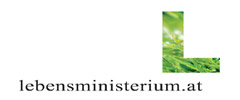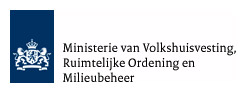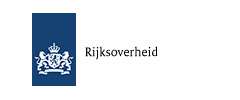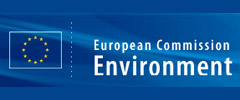Our eight demands for an EU EDC strategy
EU has the obligation to protect its people and the environment from all harm caused by endocrine disrupting chemicals
15.05.2018 |

Download the press release in full here.
Why we are concerned
Endocrine disrupting chemicals (EDCs) are increasing our chances of getting serious and potentially lethal diseases and health disorders as highlighted by experts from the World Health Organization (WHO), scientists from the Endocrine Society, and others. In these reviews of scientific literature, impacts from EDCs have been linked to reproductive and fertility problems such as drastically falling sperm rates, as well as hormone dependent cancers such as breast and prostate cancers. Neurological impairments including autism and IQ loss as well as metabolic changes including obesity and diabetes have also been associated with exposures to EDCs. In wildlife, there is further evidence of reproductive and developmental harm linked to impairments in endocrine function in a number of wildlife species: EDCs have been associated with changes in immunity and behaviour as well as skeletal deformities.

What we want
In 2017 the EU Commission committed to bring out a new integrated strategy on EDCs which is supposed to cover ´for example toys, cosmetics and food packaging´. Previous attempts to update the existing EU Community Strategy on EDCs from 1999 with recent scientific advances and actions to tackle the problem was derailed by intense industry lobby in 2013 as documented by the investigation ‘Toxic Affair’ .
Essential elements of an EU Endocrine Disrupting Chemicals Strategy
- Consider public health and precaution as the cornerstones of a new EU EDC Strategy - Protect those who are most vulnerable. Reduce exposures to children to prevent suffering from EDC-related diseases and the spiralling costs associated with treating them. Build on and expand the short-, medium- and long-term actions from the 1999 EU EDC strategy and augment their effectiveness [25].
- Enhance public awareness of EDCs – connect it with the EU’s work on protecting citizen’s health A recent Eurobarometer survey found that two out of three European citizens are concerned about exposure to chemicals in their daily lives through food, air, drinking water and consumer products or other items, as well as in the workplace. Less than half of the same group felt well informed about the potential dangers of chemicals [26]. A Europe-wide campaign to raise awareness on EDCs is needed.
- Improve regulation: Increase the control of the use of EDCs across all sectors
- Reduce our EDC daily cocktail: Replace the substance-by-substance approach by including all possible sources of exposure to multiple chemicals
- Speed up testing, screening and identification of EDCs
- Work towards a clean ´Circular economy´ and a non-toxic environment: Avoid toxic substances such as EDCs in products from the start
- Enhance European market leadership for safer substitution with no regrets and promotion of innovative solutions
- Monitor the health and environmental effects of single, groups and mixtures of ED substances to capture all sources of EDC exposure ‘across the board’ and respond swiftly to minimise them
A more protective European approach to #EndocrineDisruptors is long overdue. Read our 8 demands for @EU_Commission for an #EDCFree future: https://t.co/IPpPqXGdcD pic.twitter.com/VLYYdk6kVm
— WECF international (@WECF_INT) May 15, 2018
Related News
Hazardous chemicals: replacing it is not the solution.
Corporations and industrials are permitted to switch out one EDC for another that possesses the same hazardous properties.
03.04.2018
WECF welcomes European Parliament veto to flawed and unlawful EDC criteria
European Parliament rejected the flawed criteria proposed by the European Commission on the definition of Endocrine Disrupting Chemicals (EDCs)
04.10.2017
European Parliament Environment Committee blocks proposed EDC criteria in vote
The proposed criteria for new EDC regulation were blocked by the EU Parliament Committee
28.09.2017
Open Letter To the G20 Health Ministers Signed
As a HEAL (Health and Environment Alliance) member, WECF has signed the open letter to the G20 Health Ministers, ahead of their first ever meeting coming Friday, 19th May in Berlin.
17.05.2017






































